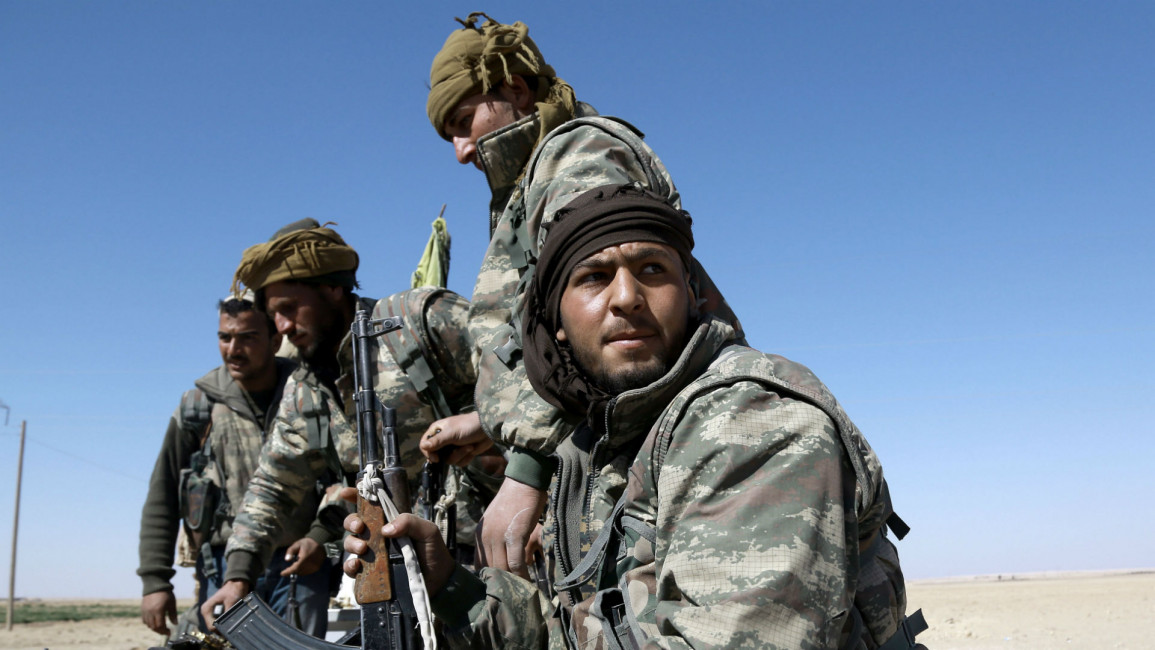Pentagon plans greater US involvement in Raqqa assault
The Pentagon is planning to significantly step-up US military involvement in the coming assault on the Islamic State group's self-declared capital Raqqa, US officials have said.
The proposal, which would ease restrictions on US engagement that were in place under Barack Obama, calls for increased special forces operations, artillery, attack helicopters and supplies to allies on the ground for the offensive in eastern Syria.
Military officials planning the assault have proposed that a cap be lifted on the size of the US military contingent in Syria, which is currently comprised of 500 special operations advisors and trainers.
An increase in this contingent would give Washington greater control over decision making on the ground without directly engaging in combat.
The plan was received by President Donald Trump on Monday after he gave the Pentagon 30 days to prepare it.
Approving the plan, however, would likely cause a strain on the US' relations with Turkey, which considers Syrian Kurdish forces to be terrorists.
Ankara has demanded that the US cease arming Kurdish militias and has vowed to advance on Raqqa alongside the Free Syrian Army.
The US, however, seems to have cast aside Turkey's concerns over the Kurdish People's Protection Units [YPG], with Lt. Gen. Stephen Townsend telling reporters on Wesnesday that there was "zero evidence" that the group poses a threat to Turkey.
He also called upon factions in northern Syria to cast aside their differences and focus on defeating the IS extremists.
Talks are currently underway between Ankara and Washington over Syria, where developments around the Kurdish-controlled town of Manbij have made some decisions affecting the US-Turkey relationship even more pressing.
The US military confirmed on Saturday that it had "increased force presence in and around Manbij to deter hostile acts, enhance governance and ensure there's no persistent YPG presence".
During Obama's final days as president, he approved plans to send two or three Apache attack helicopters to Syria, however, he also deferred a decision on whether to arm Kurdish fighters in the US-backed Syrian Democratic Forces.
US Defence Secretary Jim Mattis has largely adhered to the Obama administration's plan for Raqqa, with the new proposal simply calling for more US personnel, equipment and an easing of rules.
A Trump executive order also instructed the Pentagon to recommend amendments to military rules on engagement that went over and above the requirements of international law.
This could lead to changes enforced by an Obama executive order signed last summer, which imposes strict rules on civilian casualties.



